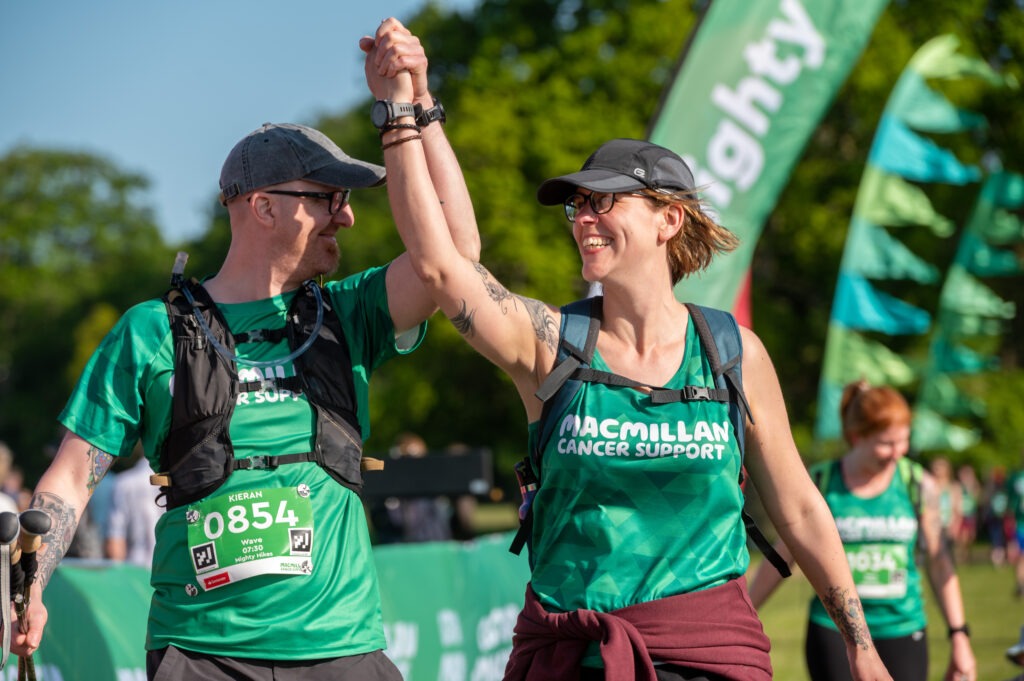Macmillan have consistently been one of the most successful organisations we have seen when it comes to launching new campaigns.
They’ve raised an impressive £362M from mass participation events over the last ten years. And their progressive approach to mass participation innovation has secured them the greatest number of appearances in the Top 25.
We chat to Kirsty Hobbs, Head of National Marketing Fundraising at Macmillan Cancer Support, to find out about their approach to over a decade of innovation.
What role does mass participation events play at Macmillan?
Mass participation events are the time that we can really bring Macmillan to life. Whether that’s in the collateral or the content we provide at the event, or within the stewardship. It’s a really opportunity for people to understand more about Macmillan and what we do.
You’ve had success with treks, coffee mornings, virtual and Facebook fundraisers. Does your approach differ for each?
No, it remains the same. We always start by asking ourselves where we see the value of each product and proposition.
We need to have an absolute understanding of where our product is in our wider portfolio, where that product is in its own product lifecycle, and the audiences we’re attracting to each of those different event propositions. This helps us understand the different levels of investment we put behind it, and ultimately what that then yields for us in terms of net income.
Macmillan have been the most successful charity we’ve seen when it comes to launching new fundraising campaigns. What do you put that success down to?
It’s not down to just one thing. Our brand has a big part to play as Macmillan is one of the most recognisable, well-known, and most loved brands. So it’s doing a lot of heavy lifting every time we’re putting a new proposition out there.
But a curious mindset also exists culturally throughout the organisation. This always helps when you’re looking at mass participation events – you spot new ways of doing things. Innovation as a mindset it heavily ingrained into Macmillan’s DNA. And it’s not just within our fundraising teams, but also in our services delivery as well. It’s about new ways of looking at things, new ways of trying things, and new platforms.
How about when a product doesn’t launch successfully, or is no longer making money – how do you handle that?
It’s important to recognise where a product is in its lifecycle and know how to manage it at each stage. You have to be led by the data, insight and results to be able to take a wider view of the product’s trajectory.
Although, this is easier said than done. I’ve definitely been on the on the side of products where I’ve just thought “One more chance, one more go. Let’s keep going.”
And it’s about not taking it personally. Failures are okay. In fact, it’s a good thing. If you didn’t have failures, then you wouldn’t have those successes either. We wouldn’t have the same number of events in the Top 25 if we didn’t have the space created from products we’ve discontinued or no longer invested in.
And finally, how have you seen the market change over the last ten years, and how did you adapt to those changes?
One of the biggest shifts has obviously been COVID. We had to change our approach to how quickly we got products out there as it was such a fast-paced market. Some really took off and flew so we had to make quick decisions about which products to invest and disinvest in.
This meant an entire pause on some of our successful events – some of which haven’t bounced back to pre-pandemic levels. And I’m not sure we will see this bounce back either. But you’ve got to be open to this fact. For us, it’s about understanding where the portfolio is right now, and what the future looks like. This helps us adapt for the future, rather than trying to cling onto a path that doesn’t exist anymore.
This interview is from our recent publication ‘Ten Years of the Top 25’ where we share our learnings from a decade of mass participation data and insight. If you haven’t already got your copy, check it out now.





